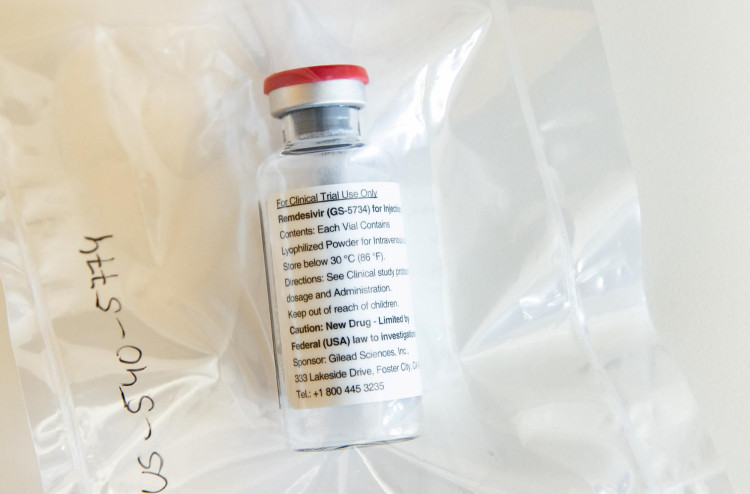One of the most extensive COVID vaccine trials in the world has made public its highly-anticipated initial results on Thursday - and they didn't please the experts.
Remdesivir has been found to be ineffective in preventing deaths among COVID patients, a study backed by the World Health Organization involving over 11,000 subjects in 30 nations, showed.
The only repurposed medicine that has been granted emergency use approval in the U.S. by the Food and Drugs Administration, remdesivir including a host of other experimental therapies appeared to have no effect on hospitalized coronavirus patients.
The findings, which have not yet been peer-reviewed, were based on overall number of deaths, ventilation and time spent on hospital, the scientists wrote in a draft of results of the WHO's Solidarity trial that was published on medRxiv.
WHO conducted a global test to determine the safety and effectiveness of four drugs -- hydroxychloroquine, lopinavir, Interferon-B1a, and remdesivir in treating COVID patients.
According to WHO, for each vaccine in the trial, "the effect on mortality was disappointingly unpromising," CNN quoted WHO as saying in a statement.
For infectious disease expert Dr. Ilan Schwartz of the University of Alberta in Canada, the latest results "puts the issue to rest - there's certainly no mortality benefit," the New York Times reported.
Remdesivir, developed to treat Ebola by U.S. biotech group Gilead Sciences, was among the earliest vaccines rolled out for COVID. U.S. President Donald Trump was administered with remdesivir when he was diagnosed with the virus on October 2. He has also promoted the use of hydroxychloroquine, as has Brazil's President Jair Bolsonaro.
WHO's Solidarity trial will continue to examine other forms of therapies, including newer experimental vaccines, immunomodulators, and anti-COVID monoclonal antibodies, the United Nations body said.
Gilead Sciences said the results did not mean the vaccine, sold under the brand name Veklury, is useless. The pharmaceutical group said it is concerned that the interim findings have not "undergone the rigorous evaluation required to allow for constructive scientific discussion," CNN reported.






